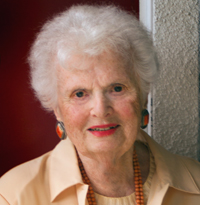By Natasha Josefowitz, ACSW, Ph.D.

LA JOLLA, California — The title of the book is intriguing: Wiser: The Scientific Roots of Wisdom, Compassion, and What Makes Us Good by Dr. Dilip Jeste. I was eager to read it and hopeful that I would indeed become wiser. I will turn 95 on October 31. I still wonder what I will be when I grow up; I will probably have an identity crisis on my death bed.
With its simple language, I learned the easy-to-understand the road to wisdom. So, I am sharing with my readers the doable steps needed in order to become a wiser person. What I like about the book, besides its teachings, is Dr. Jeste’s inclusion of his own reactions to his findings. We get a real person’s thoughts and feelings about the topics of his research. I have known Dilip Jeste for many years, having been a member of the board of the Stein Institute of Aging, of which he was the director. He is a neuropsychiatrist, Director for the Center of Aging at the University of California San Diego and past president of the American Psychiatric Association. Dr. Jeste himself is the embodiment of all the aspects he defines as wisdom.
According to Dr. Jeste, wisdom is a personality trait. It is grounded in biology and can be studied and measured. The environment impacts biology (epigenetics), and biology impacts behavior; however, we can have a measure of control over how wise we become. In its simplest terms, wisdom is a cognitive, reflective, affective intelligence.
Some of the components of wisdom include the following:
- Pro-social attitudes and behaviors, such as empathy, compassion, and altruism. Empathy is the ability to understand someone else’s thoughts and feelings. Compassion and altruism are the actions undertaken to help another person. We are predisposed to do the right thing (after years of taking care of our babies’ needs). Our bodies interact with each other at energetic frequencies (good vibes).
- Emotional stability is the ability to maintain self-control in spite of surging emotions, which may be fear or anger and whatever impulses that may lead to negative outcomes. It is also reflected in a positive outlook on life, dismissing negative thoughts. Emotional homeostasis is a large part of wisdom.
- Balancing decisiveness and acceptance of uncertainty. Although one has opinions and beliefs that may have been inculcated in us over a lifetime, it is important to remain open to others’ beliefs, perspectives, and views of the world. When I traveled, it was always with great surprise that I found that peoples and societies can be successful in ways that are unfamiliar to me. I have learned to accept “the other’s” way of life is as valid as my own. The brain does not like uncertainty and, therefore, makes up stories to explain the unexplainable. From the ancient gods and goddesses to today’s conspiracy theories, we want answers when none exist. We need to learn to live and accept life’s uncertainties.
- Self-reflection leading to self-understanding is a willingness to process and analyze our own motivations, our strengths and weaknesses, our secret agendas and not easily understandable impulses. This knowledge of self also helps in better decision-making. It includes looking within with curiosity and looking without with wonderment.
- Social decision making and pragmatic knowledge of life refers to the stage of life when one has accepted the components of wisdom and one is ready to share this wisdom (give advice). It reminds me of Carl Jung’s last stage of life, generativity, giving back what one has received, being of service to others. While Dr. Jung places the sharing of wisdom at the last stage of life, Dr. Jeste would like to see compassion and tolerance taught to school-aged children.
Dr. Jeste sees spirituality as connected to wisdom. It includes other-centeredness, forgiveness, gratitude, a sense of inner peace with death, humility, reverence for nature, ethical conduct, optimism, competence, and autonomy.
Now, dear readers, you know how to attain wisdom. Buy the book and practice. The good news is that studies have shown as we grow older our level of happiness increases. We tend to minimize past hurts and maximize the present joys. Dr. Jeste encourages us to be active: cognitively, physically, and socially.
On a last note: Here is to all of us wise old owls—may we all grow and share in wisdom.
© Natasha Josefowitz. This article appeared initially in the La Jolla Village News. You may comment to natasha.josefowitz@sdjewishworld.com